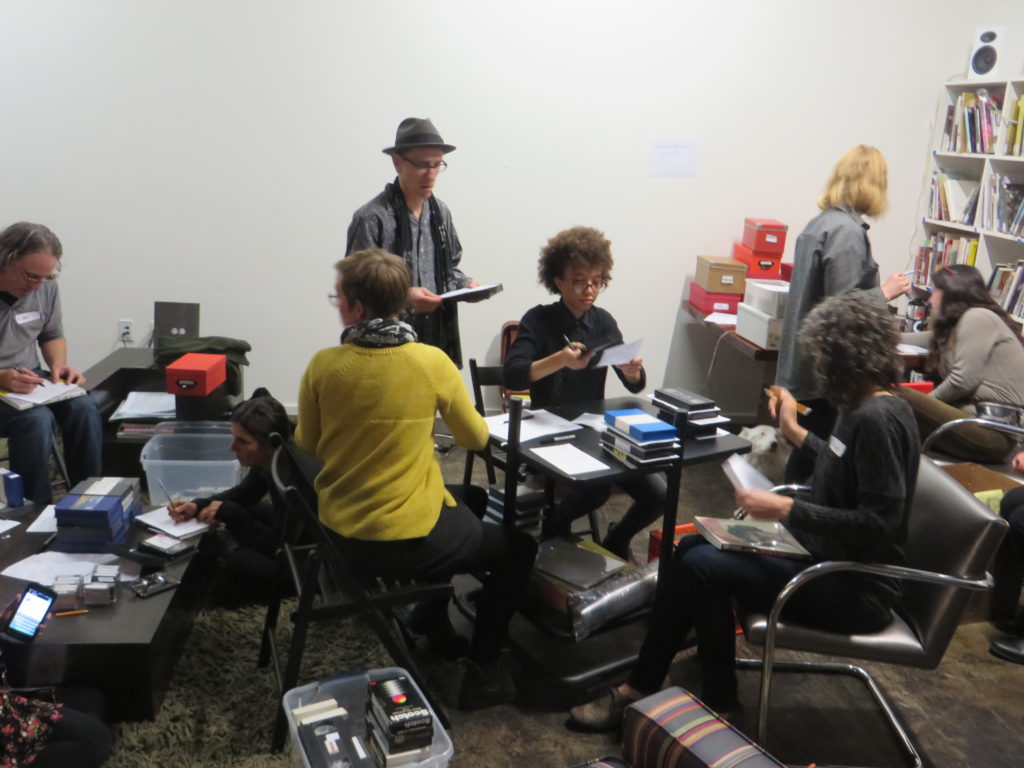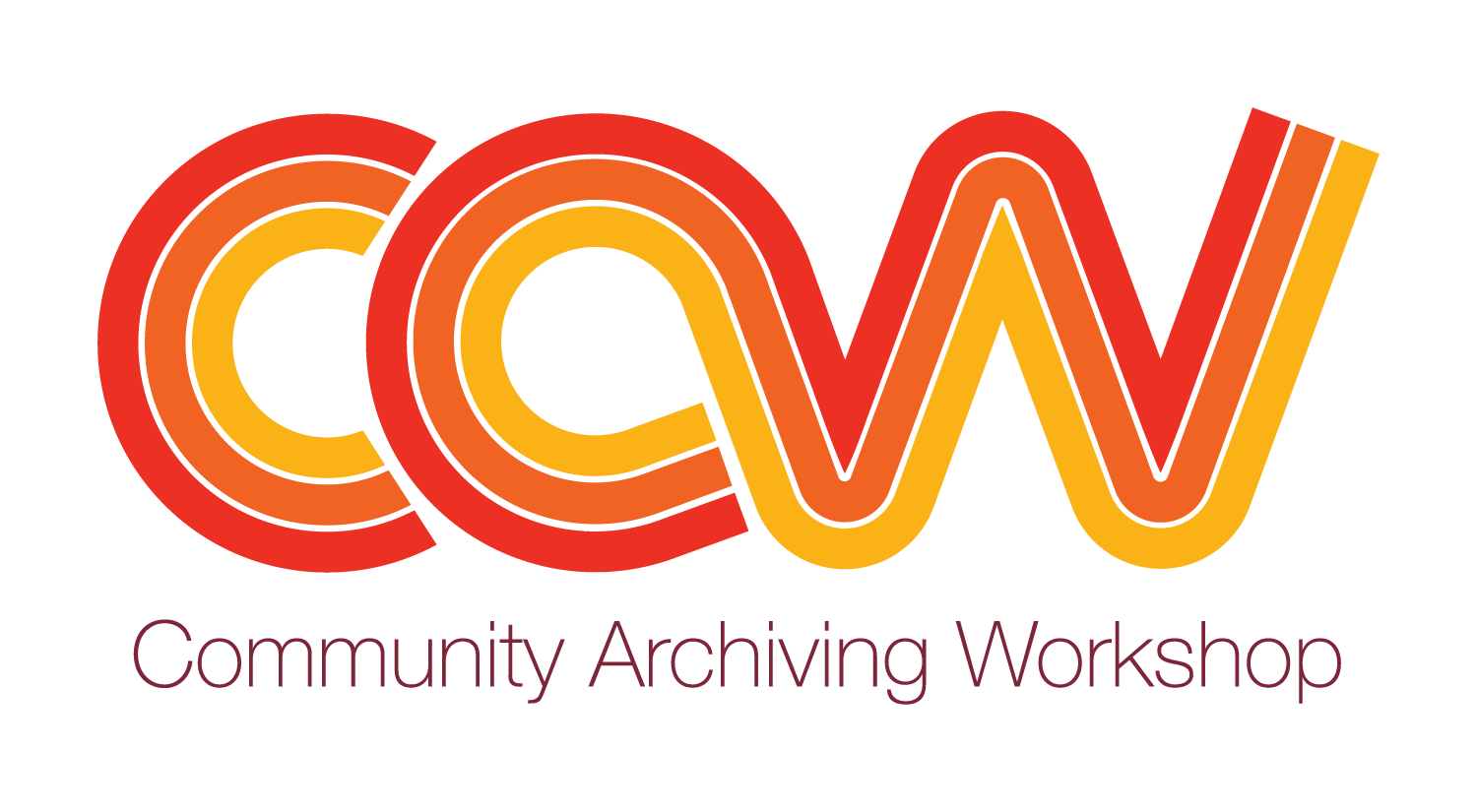It’s important to have a very clear plan for how the day will unfold. If possible, have the trainers arrive an hour earlier than the rest of your volunteers, so you can give them a bit of an overview of your plans for processing the collection. It gives them a chance to ask questions, have a clear overall sense of your goals and your specific workflow plans, and familiarize themselves with how the space and supplies are organized.
Post a schedule for the day on the door so volunteers know when to expect lunch breaks, shift switches, and end time.
Once the work begins, a few of the planning team should function as floaters, answering questions and jumping in where extra help is needed. In addition, other members of the planning team should be positioned at each station as “managers,” at least for the beginning of the session to be sure things are running as you planned. This is particularly important if you didn’t have time for pre-training with your trainers.
Solicit feedback from your volunteers as you go, and take a lot of photographs and video to document the proceedings of the workday. This will all come in handy when you report back to your sponsors, donors, and volunteers on how well the day went.
As a celebration at the end of the workday, plan to screen something from the host collection. It doesn’t necessarily need to be something from the collection you’ve worked on — though that would be nice — but anything representative of the type of media. A 16mm film screening if you’ve been working with 16mm all day, for instance, would be excellent.
The table below is a typical workshop schedule.
| Time | Task | Description |
|
9- 9:30 |
Time for arrival: coffee and tea |
Set a start time that enables volunteers to arrive and have a short amount of time for socializing prior to the start of the workshop (this will also account for the inevitable latecomers … they are volunteers after all!). |
|
9:30 – 10 |
Welcome and Introductions |
Once all the volunteers are on-site, have a formal welcome where you introduce workshop leaders and organizational partners- especially, the repository whose collection you are processing. Orient volunteers to the space ( at the very least emergency exit and restroom locations) and verbally present an overview of the day. |
|
10- 11 |
Instructional Presentations | |
|
11- 1 |
Process Collections | |
|
1-2 |
Lunch / Presentation or screening |
If you’re ordering lunch for delivery, one of the institution’s staff should coordinate this to arrive at your set lunch break. Keep all food and drinks away from the collections. If necessary, set up an alternate break area in the hallway or an existing break room. |
|
2:00-4:30 |
Process Collections | |
|
4:30-5:00 |
Wrap-up |

